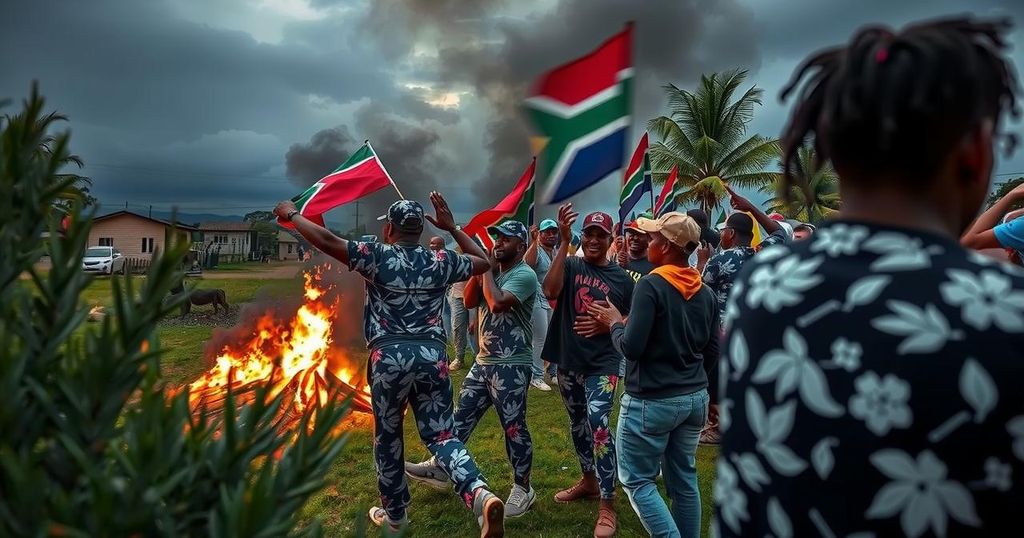Mozambique has seen fresh protests against disputed election results leading to police violence and the closure of a key border crossing with South Africa. Opposition leader Venancio Mondlane claimed the elections were rigged, prompting ongoing demonstrations. Reports indicate at least two individuals have died, raising concerns over the government’s response to dissent in the wake of the elections.
Recent protests erupted in Mozambique following the disputed election results, resulting in clashes with law enforcement and the closure of the primary border crossing with South Africa. Reports indicate that at least two individuals were killed during a police crackdown on demonstrators in Nampula. Opposition leader Venancio Mondlane has called for continued protests after the ruling Frelimo party was declared the winner of the October 9 elections, a decision he challenges, alleging electoral fraud. Human Rights Watch has previously documented that the crackdown has already resulted in at least 30 fatalities during prior demonstrations. In the northern city of Nampula, protests escalated as police reportedly opened fire on a group of demonstrators, prompting severe backlash from local citizens. Ivaldo Nazare, a civil society activist, reported that youths gathered to march toward the city center but were met with heavy police presence and gunfire. Activists have also blocked major traffic routes at the Ressano Garcia border crossing, causing significant delays for trucks en route to South Africa. One protester, Fenias Matavel, emphasized the importance of raising awareness about the ongoing crisis. Through their protests, citizens are demanding transparent election results. The Lebombo post at the Mozambique-South Africa border has been closed due to the ongoing protests, according to South Africa’s Border Management Authority. Tensions at this border crossing, an essential passage for South African trade, have been heightened due to the post-election violence. Regional leaders in the Southern African Development Community (SADC) have scheduled an extraordinary summit to address the unrest in Mozambique. Observers have noted election irregularities, and the Constitutional Council is under pressure to clarify voter counts before the official results are finalized, which is a necessity before the incoming president from the Frelimo party assumes office in January 2024.
The protests in Mozambique stem from the recent elections held on October 9, 2023, which have drawn significant scrutiny due to allegations of electoral misconduct. The ruling Frelimo party, which has maintained political dominance since Mozambique’s independence from Portugal in 1975, has been accused of manipulating the election process to ensure their continued success. This unrest reflects broader discontent among citizens regarding political transparency and representation. Human Rights Watch has reported numerous fatalities due to police action against demonstrators, highlighting a troubling pattern of violence in response to dissent. The closure of the border with South Africa further demonstrates the escalating nature of the protests and their impact on regional trade and stability.
The recent protests in Mozambique, ignited by claims of electoral fraud, have resulted in violence, loss of life, and significant disruption at the border with South Africa. With the opposition leader urging continued demonstrations, the situation remains tense and precarious. These events underline the urgent need for political dialogue and transparent governance as Mozambique navigates its electoral processes amidst heightened social unrest. The involvement of regional leaders at the upcoming SADC summit indicates the international community’s growing concern for peace and stability in Mozambique during this turbulent period.
Original Source: www.barrons.com






